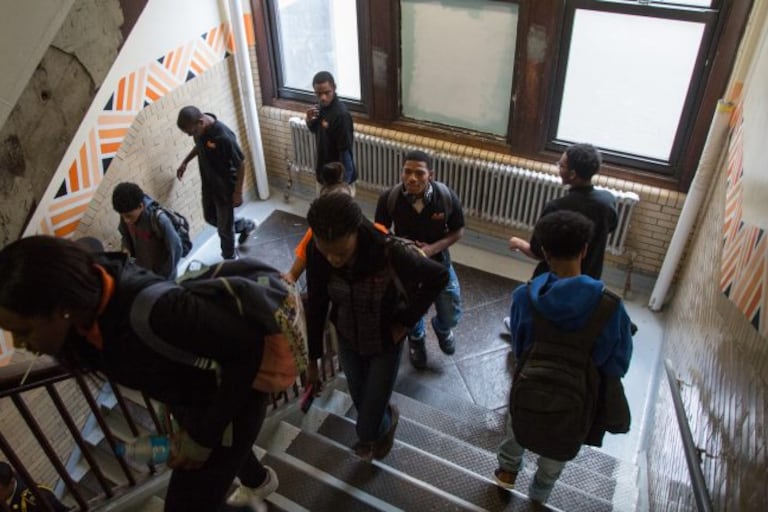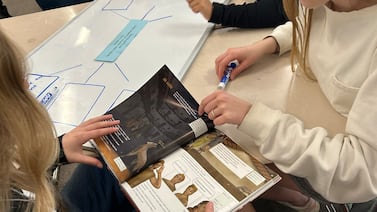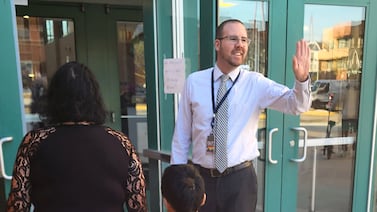Nearly 4,000 high school seniors in Philadelphia schools have yet to meet new graduation requirements imposed by a state law that goes into effect for this school year.
As of last week, 52% of seniors, or 4,223 out of 8,120 students, had met state requirements for graduation, according to district officials who testified before the City Council on Friday.
In their presentation to the council, Philadelphia school officials estimated that only 28% of seniors scored proficient or advanced on all three state Keystone exams, which is one of the paths students can take to earn a diploma. (The Keystones are generally taken in the 11th grade.) Another 290 students — or 4% — are on track to graduate because they passed one state test and had a high enough composite score in all three.
The remainder have used alternate pathways created by Act 158, the state law signed by former Gov. Tom Wolf in 2018 as a way to offer students who do not score at least proficient on the three Keystone exams more opportunities to graduate. It takes effect with this year’s graduating class.
Aside from relying on proficiency and composite scores on state exams, students can earn diplomas by attaining an industry-based certification in a career and technical education program; scoring high enough on tests like the Advanced Placement or International Baccalaureate exams; or following an “evidence-based” pathway approved by the Pennsylvania Department of Education, which can include work or internships outside of school and acceptance into a four-year college.
The district reported that 94 students so far have met requirements by getting a CTE certification, 452 through an alternate assessment, and 208 through an “evidence-based” project. In addition, 326 students with disabilities approaching the age of 21 are on track to graduate via a separate state law, and another 587 are meeting the goals and objectives of their Individualized Education Plan.
That leaves 3,897 students who the district characterized as still “in progress” to meet the requirements.
Those statistics track with a recent report from the Philadelphia Education Research Consortium on the implications of the 2018 changes to graduation pathways.
Using data from 2018 and 2019, the group projected that more than half the district’s students will need additional help to either pass state Keystone exams, or graduate under one of the other pathways. The group also found that in 2018 and 2019, only about a third of students scored high enough on all the Keystones tests to graduate based on those results under Act 158.
“The share of students who would have met or almost met Keystone pathways varied based on race/ethnicity, economically disadvantaged status, and other student characteristics, reflecting local, state, and nationwide historical inequities in standardized tests,” the consortium said in its October report.
Principal Brianna Dunn-Robb of Constitution High School said there’s an intense effort under way to help those students who aren’t on track to earn a diploma yet.
“We’re working hard in collaboration with the district to meet the needs of all individual students,” she said. “It takes a lot of planning and working to see what pathways students will follow. There is a lot of data collection on a weekly basis.”
Students can “flow in and out of different pathways” throughout the year, she said. The key is to get more cooperation from local businesses to increase internship opportunities and institutions of higher education to expand dual enrollment, she said.
School officials also told council members that the city government itself could offer internship opportunities, recruit private employers to offer them as well, and establish a database of participating businesses and organizations.
“I hope we look upon this as not just a school district issue, but a city of Philadelphia project to assure all our graduates are college and career ready,” Dunn-Robb said.
Dale Mezzacappa is a senior writer for Chalkbeat Philadelphia, where she covers K-12 schools and early childhood education in Philadelphia. Contact Dale at dmezzacappa@chalkbeat.org.







